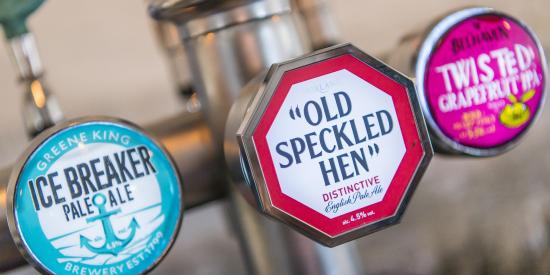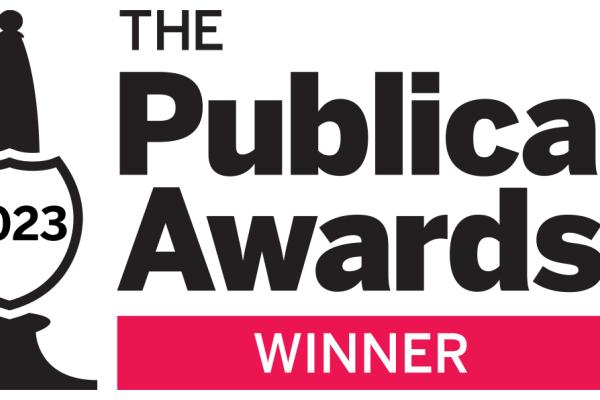Finding a pub to let while holding down your job
Finding your ideal pub to let and starting a new business is a big step. It takes time to find a pub, develop a business plan, and get compulsory training and licences. Fortunately, most people, who are looking to take on a pub for the first time, find that they can continue in fulltime employment right up until they sign the agreement for their pub.
Of course, it’s not always easy. In fact it’s a bit like looking for another job. You need to make time for your search, there will be interviews to attend, a business plan to write and then appointments with accountants and other professionals as you prepare to sign your agreement.
But by organising your search for a pub carefully, there is a tremendous amount you can do outside normal business hours – and there are a lot of resources you can access to help you. You can make your search simple and straightforward with minimal time being wasted.
Step 1: Identify What Type Of Pub You Want
Start by identifying exactly what will comprise your perfect pub. It is not a matter of simply choosing a pub, the pub has to be right for you. So sit down and draw up a couple of lists – one containing all the features that are absolutely essential, the other list with features on which you could compromise.
Location is a key consideration. Do you want to be in town, out of town or in a village? Are you looking for a pub in the area you currently live in, or are you prepared to move further afield?
What type of pub do you want? Are you seeking a wet pub focused on provision of drinks or do you want to have a food offer? Are you looking for a pub with a restaurant or just providing bar food? What about live entertainment or a focus on sports? Do you want accommodation, rooms to rent or outside facilities such as a garden or patio? Are you looking for a pub with an established format involving little initial input from yourself, or a pub that needs work, providing a clean slate so you can put your stamp on it?
Step 2: Talk To Your Brewery Or PubCo
Once you have an idea of what you want, talk to a couple of breweries or Pub Cos that cover your location. This can save you a lot of work, as they will be able to do much of the searching for you!
Tell them exactly what you want and ask for their help. They will be able to carry out a search of pubs on their databases – not just those that are immediately available but those that are likely to be available in the near future. Business Development Managers working for a Pub Co will be aware of any potential changes in circumstances relating to existing pub operators, such as people who may be changing pubs or moving to another area. These pubs won’t be listed as available yet, but the Business Development Manager will know of their existence. One of those pubs could be your ideal location. It is not unusual for pub tenancies to be filled without being advertised, simply by word of mouth.
Step 3: Be Prepared To Compromise
If time is of the essence and you want to find your pub quickly, be prepared to compromise as much as possible. Keep your list of essentials short and widen the search areas as far as you possibly can. If you want to stay in the same geographical region, consider adjoining counties as well as your preferred area. It may well be that the ideal pub is just across the county boundary, but by sticking too rigidly to a geographical location you might miss it.
The wider your search categories, the more likely you will be able to quickly find the pub that will provide your perfect business opportunity.
Step 4: Use Your Spare Time Wisely
The initial stages of your search do not have to be confined to business hours. A couple of hours each evening will provide a lot of valuable time to develop your business plans, research your market and get any support you need. There are lots of online resources such as Greene King’s business support tools, which can be used at any time of the day or night.
Evenings and weekends are an ideal time for working on business proposals and also viewing pubs. Going out for a drink takes on a very different aspect when you are considering the pub as a potential business opportunity. You can spend your spare time visiting pubs that fit your criteria and see what they are like. It is a good way of discovering how the pub operates, the level of customer service, whether you like the style, the type of customers attracted to the pub and the facilities provided. If you feel comfortable in the pub as a customer, then it is more likely that you will enjoy working in it as an operator.
Some training can also be undertaken outside normal working hours. You can do a lot of online training to obtain any additional skillsets and qualifications such as the British Institute of Inn Keeping Pre-Entry Awareness Training (PEAT). Training materials are readily available on the Greene King website.
Step 5: Time Your Resignation From Your Job Carefully
Depending on your contract of employment you may have to give a month or two months notice – and usually you can add any remaining holiday entitlement on top of this. So by carefully timing your departure from your existing job, you could find yourself with several weeks paid leave between the time you leave your job and launch your new business venture. That time can then be used to help get your pub off the ground by completing any training necessary, getting business systems and processes set up, recruiting staff etc.
Alternatively, if you have paid leave available you could time your leaving date so that your holiday entitlement overlaps with your pub launch date. That way your money will provide an additional cushion during the first week or so of trading. However, do bear in mind that the weeks leading up to your launch can be very busy, particularly if the pub has been refurbished or is re-opening after a temporary closure. Speak to your Business Development Manager to get a realistic idea of how much time to allow for.
We don’t recommend that you hand in your resignation until you sign your pub tenancy agreement. Although it is unlikely, in a worst case scenario if the agreement is delayed for any reason you may find yourself out of work and without a pub to run.
Holding down your job while finding a pub is quite possible with the right support. It reduces financial worries, especially if you have a family; helps you develop really good relationships with your PubCo; and gives plenty of time to prepare your business ideas.
Our top tips for prospective pub tenants are very simple:
-
Be clear about what you want,
-
Get help from your PubCo,
-
Use your spare time wisely,
-
Time your resignation carefully.
By doing so, you can gain the best of both worlds – being able to continue holding down a job for as long as possible, maximising your income and finding the pub of your dreams!




